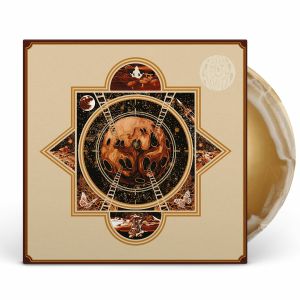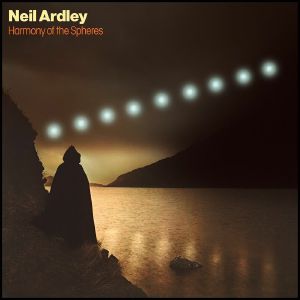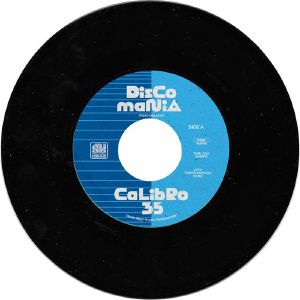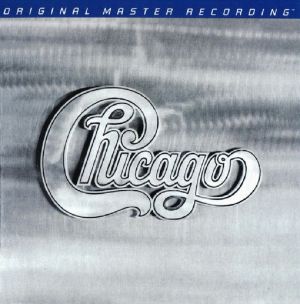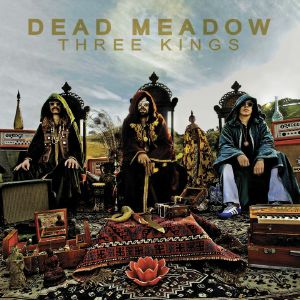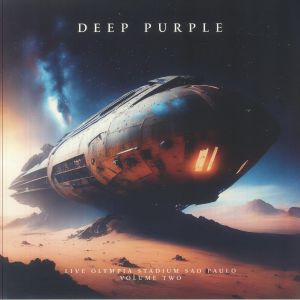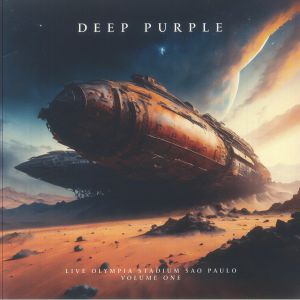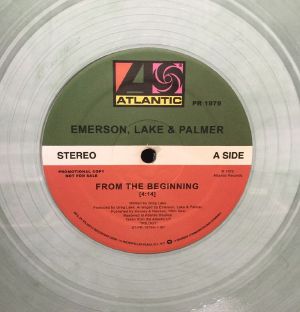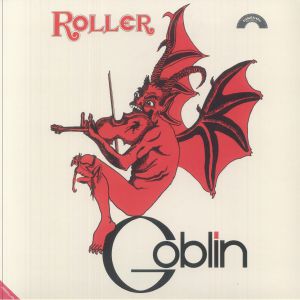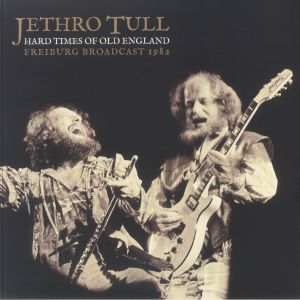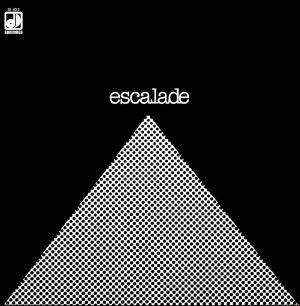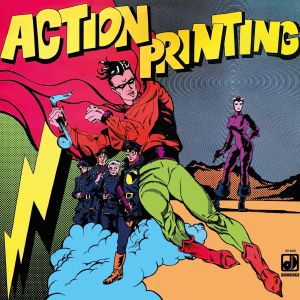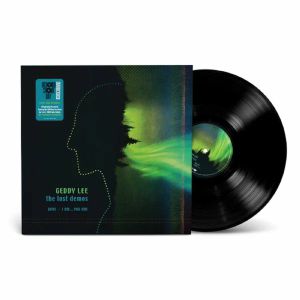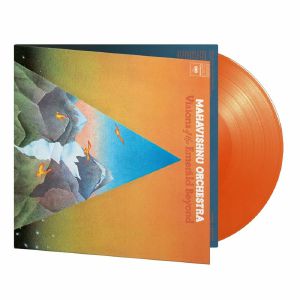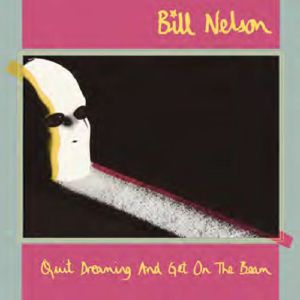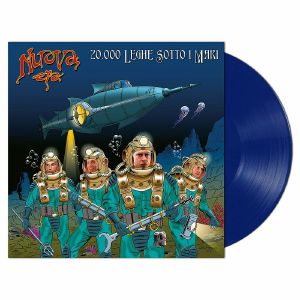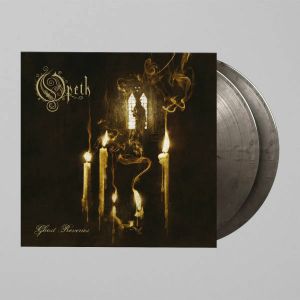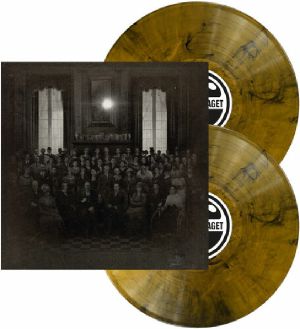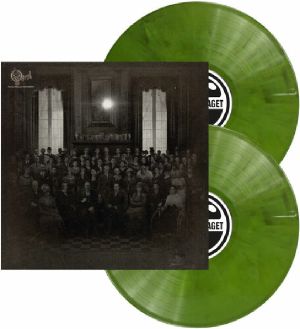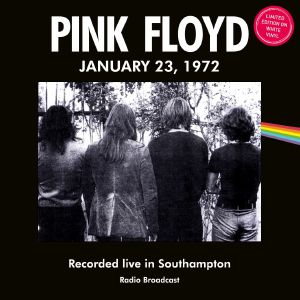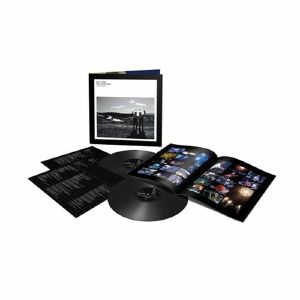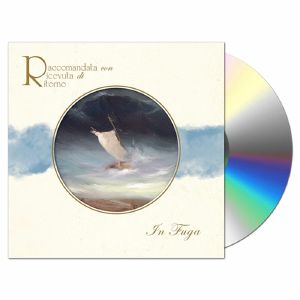Filter
Stock
Featured
Release Title
Price
Tags
New releases last two weeks: Progressive Rock
Progressive Rock vinyl released in the last two weeks in stock $18.25
Skin Deep (reissue) (white red & blue tri-coloured vinyl LP limited to 200 copies)
Cat: YRC 6. Rel: 16 May 25
in stock $46.17
Hogtid (remastered) (gatefold gold & white 'smash' vinyl LP)
Cat: KAR 281LP. Rel: 01 May 25
in stock $35.12
North Sea Jazz Concert Series (limited 180 gram white vinyl LP)
Cat: 871862 7235744. Rel: 06 May 25
in stock $38.16
Harmony Of The Spheres (hand-numbered LP + booklet)
Cat: AOR 002ST. Rel: 07 May 25
Review: Born in Kent and central to the UK's 70s jazz modernism, Neil Ardley composed with the precision of a scientist and the vision of a cosmic philosopher. This long-overdue reissue from Analogue October captures a project that translates planetary orbits into a nine-note harmonic systemitoo vast for acoustic instruments, brought to life instead through early synthesisers. 'Arcturus' and 'Spiral Nebula' interlace fluid sax work from Barbara Thompson with John Martyn's signature reverb-drenched guitar, while Geoff Castle's synths evoke deep-space drift. 'Rainbow Four' channels modal funk, and 'Neptune' floats into ambient abstraction. Produced at Morgan Studios with a full ensemble of jazz heavyweightsiTony Coe, Ian Carr, Billy Kristian, Richard Burgess, and Trevor Tomkinsithis is a record that swings between science fiction and symphonic elegance. For all its high concept, it remains rooted in groove and human touch. A meticulous AAA cut from the Decca master tapes seals the experience: a bold and beautiful reminder of how far British jazz once dared to travel.
… Read more in stock $49.21
in stock $22.95
Review: The Milanese outfit dive headlong into cinematic Afro-disco on this limited 7", reworking two cult dancefloor staples with characteristic flair. On the A-side, their version of Piero Umiliani's 'Discomania' hits with tightened syncopation and swirling synth arrangements, turning the cosmic Italo-disco cut into a hypnotic afrobeat strut. Flip it over for a rich reimagining of Azymuth's 'Jazz Carnival'iCalibro 35 boost the groove with deep-bottomed funk and crisp horns, pushing the original's samba swing into widescreen. Known for their work at the intersection of funk, soundtrack and psych, the band bring sharp musicianship and warm analogue heat to both sides of this essential 45.
… Read morePlayed by: Craig Charles Funk And Soul, Voodoocuts
in stock $13.55
Lost Themes (10th Anniversary Expanded Edition) (hot pink vinyl LP + pink vinyl 7" with obi-strip)
Cat: SBR 369LPC2. Rel: 08 May 25
Review: John Carpenter's knack for cinematic storytelling without the screen takes centre stage on this deluxe reissue, marking ten years since the release of the great American soundtrack artist's first Lost Themes edition. The new expanded edition, complete with artwork by Greg Ruth, offers more than just a nostalgic revisit; it adds a new 7" featuring two unreleased tracks, 'Cruisin' With Mr. Scratch' and 'Dominator', both pulled from the original sessions. When it first came out, the album stood out for its vivid, visceral style, blending horror, science fiction, and eerie synthwork into standalone pieces that could easily score unseen films.
… Read more in stock $37.88
Chicago II (reissue) (limited numbered SACD)
Cat: 821797 213363. Rel: 28 Apr 25
in stock $49.21
Three Kings (reissue) (gatefold 2xLP)
Cat: HPS 332. Rel: 16 May 25
in stock $33.17
Live Olympia Stadium Sao Paulo Volume Two (gatefold purple vinyl 2xLP)
Cat: EWR 050LPLTD. Rel: 28 Apr 25
in stock $27.92
Live Olympia Stadium Sao Paulo Volume One (gatefold purple vinyl 2xLP)
Cat: EWR 049LPLTD. Rel: 28 Apr 25
in stock $29.30
Highway Star: Live At Paris Theatre, London 1972, Radio Broadcast (limited gold vinyl LP)
Cat: ROOM 171. Rel: 28 Apr 25
in stock $19.63
From The Beginning (translucent green vinyl 12")
Cat: PR 1979. Rel: 28 Apr 25
Review: This special green slab of wax brings together two Emerson, Lake & Palmer tracks, one of them with a fresh twist from a legendary US record store. The classic ballad 'From the Beginning' is rich in warm acoustic guitar and Greg Lake's evocative vocals so it stands as one of the band's most beloved and accessible moments. On the flip, 'When the Apple Blossoms Bloom...' receives a bold Dope Jams Kaatskill Mountain take, which flips it into a sprawling, psychedelic-drenched remix that infuses the instrumental with hypnotic grooves and experimental textures. With both cuts on one 12", this one is both a nod to prog rock's legacy and a bridge to new sonic frontiers.
… Read more in stock $22.95
in stock $21.01
in stock $32.07
in stock $21.57
in stock $42.02
Forever Now (LP + insert in spot-varnished sleeve)
Cat: PELLP 288. Rel: 16 May 25
in stock $21.57
Liveforms: Fauna Live In London (limited gatefold green eco vinyl 2xLP)
Cat: IOM 741G. Rel: 08 May 25
in stock $51.97
in stock $32.07
Bees In The Bonnet (limited clear vinyl LP)
Cat: RLP 3237CLEAR. Rel: 08 May 25
in stock $26.27
in stock $24.61
Review: Hailing from Norway, Hedvig Mollestad is renowned for her ability to bridge the worlds of jazz and heavy rock with a fierce, improvisational spirit. The trio, which has been at the heart of her sound since its inception, is back with their latest offering after a four-year hiatus, following the release of Ding Dong. This time, there's a palpable sense of urgency and creative freedom. Tracks like 'Bees In The Bonnet' and 'Under The Velvet Sky' highlight their complex interplay, weaving intricate structures with fiery, riff-heavy moments. The trio's chemistry, cultivated over years of touring and writing together, has only deepened, with an infectious energy that resonates throughout the release. Mollestad's sharp, commanding guitar work remains a focal point, as she effortlessly fuses influences from jazz legends to the weighty riffs of metal pioneers.
… Read more in stock $14.37
Hard Times Of Old England: Freiburg Broadcast 1982 (gatefold 2xLP)
Cat: PARA 553LP. Rel: 06 May 25
in stock $26.82
in stock $33.17
in stock $14.37
in stock $36.48
in stock $36.48
in stock $25.16
Jon LORD / EBERHARD SCHOENER / VARIOUS
Windows (50th Anniversary Edition) (limited gatefold orange vinyl LP)
Cat: 405053 8983210. Rel: 15 May 25
in stock $30.14
Gemini Suite (remastered) (limited gatefold clear oramge black white yellow & pink splattered vinyl LP)
Cat: 405053 8938296. Rel: 15 May 25
in stock $30.14
Visions Of The Emerald Beyond (50th Anniversary Edition) (limited numbered 180 gram audiophile orange vinyl LP)
Cat: MOVLP 2205C. Rel: 29 Apr 25
Review: Mahavishnu Orchestra, a believably metaphysical force in the alternate plane that is jazz-rock fusion, released Visions Of The Emerald Beyond in 1975, indicating an accessible and funk-influenced approach compared to their earlier works. Through sprawling fusion fugues and shorter, more structured pieces, the record is, despite its compositional variety, a fadeless, seamless connected suite. 'Lila's Dance' stands tall among the movements especially, though 'Eternity's Breath' and 'Cosmic Strut' also abound in their sooling psychic projections, demoing the radical result of the shaken-up, second Mahavishnu lineup, with Mahavishnu himself, sometime Miles Davis ensemble guitarist, John McLaughlin remaining at the helm.
… Read more in stock $36.22
This Strange Engine (Remix 2024) (gatefold 2xLP)
Cat: 402975 9203186. Rel: 29 Apr 25
in stock $47.83
in stock $31.24
Quit Dreaming & Get On The Beam (Deluxe Edition) (3xCD + Blu-ray + poster + postcards)
Cat: ECLEC 42890. Rel: 15 May 25
in stock $69.96
in stock $32.90
Ghost Reveries (reissue) (limited numbered 180 gram audiophile silver & black marbled vinyl 2xLP + poster + booklet)
Cat: MOVLP 2269S. Rel: 07 May 25
Review: Originally released in 2005 and celebrating its 20th anniversary, Ghost Reveries would serve as the eighth full-length from Swedish progressive metal legends Opeth. Following the 2002/2003 two-part project which showcased their most malevolent form on Deliverance and then a resolutely pleasant prog rock opus with Damnation, this follow up sought to rectify one side with the other; coalescing into a masterwork which simultaneously was regarded by longtime fans as a career height, whilst the expanded distribution from signing with major label Roadrunner opened them up to an entire new wave of unsuspecting ears. Marking their first album since 1999's Still Life to not be produced by Porcupine Tree's Steve Wilson, instead duties fell to Jens Bogren (Katatonia, At The Gates, Dimmu Borgir) who helped Mikael Akerfeldt and his cohorts to rediscover their death metal origins yet channelled through their more melancholic sensibilities. Boasting some of their most vital pieces from the epic 10-minute opener 'Ghost Of Perdition', to the even lengthier fan favourite 'Reverie/Harlequin Forest', as well as the equally adored 'The Grand Conjuration', the album has long since been held aloft as the perfect modern entry point to the world of Opeth. The project would also be the first to include keyboardist Per Wiberg as a "permanent" member while serving as their final endeavour to feature both drummer Martin Lopez and long-time guitarist Peter Lindgren.
… Read more in stock $40.92
The Last Will & Testament (limited gatefold "eastern amber wave" vinyl 2xLP)
Cat: 426246 473462. Rel: 15 May 25
in stock $43.69
The Last Will & Testament (limited gatefold "southern green" vinyl 2xLP)
Cat: 426246 473463. Rel: 06 May 25
in stock $44.24
Recorded Live In Southampton January 23 1972 (limited white vinyl LP)
Cat: ROOM 166. Rel: 16 May 25
in stock $19.63
Pompeii Intro (Feature Film)
Echoes (part 1)
Careful With That Axe Eugene
A Saucerful Of Secrets
Us & Them
One Of These Days
Set The Controls For The Heart Of The Sun
Brain Damage
Mademoiselle Nobs
Echoes (part 2)
Pompeii Intro (Concert)
Echoes (part 1)
Careful With That Axe Eugene
A Saucerful Of Secrets
One Of These Days
Set The Controls For The Heart Of The Sun
Echoes (part 2)
Review: This historic 1972 performance film marked a definitive evolution of Pink Floyd's artistic vision, and is possibly the moment they first truly escaped the more ephemeral pop of the Syd Barrett era and started to become the prog giants that would go on to dominate the 70s both culturally and commercially. The haunting imagery of Pompeii combined with an expertly remixed sound design by Steven Wilson turns this film from a mere document of the past into a multi-sensory experience. Meticulously remastered, each note of 'On The Run' and 'Us and Them' hang with crystalline clarity in the surround mix and the shifts between searing intensity and quiet reflectionifrom the thunderous opening of 'Echoes' to the fragility of 'Mademoiselle Nobs' - are rendered in remarkable detail. It's a profound exploration of Pink Floyd's creative process, capturing the band at a pivotal moment as they craft the sonic landscapes that would later define The Dark Side of the Moon. This release ensures that the film's timeless allure is as potent today as it was over fifty years ago, inviting a new generation to experience the alchemy between image, sound and performance.
Region code: B
… Read moreRegion code: B
in stock $27.10
Live In NYC Madison Square Garden July 2 1977 (limited red vinyl LP)
Cat: ROOM 167. Rel: 16 May 25
in stock $19.63
Pompeii Intro (Feature Film)
Echoes (part 1)
Careful With That Axe Eugene
A Saucerful Of Secrets
Us & Them
One Of These Days
Set The Controls For The Heart Of The Sun
Brain Damage
Mademoiselle Nobs
Echoes (part 2)
Pompeii Intro (Concert)
Echoes (part 1)
Careful With That Axe Eugene
A Saucerful Of Secrets
One Of These Days
Set The Controls For The Heart Of The Sun
Echoes (part 2)
Review: More than half a century after its original release, Pink Floyd At Pompeii: MCMLXXII has returned to cinemas. Shot in 1971 at the haunting amphitheatre ruins of Pompeii, the film captured the band in their pre-DSOTM phase, during which time they were moving away from their originally overt psychedelia and space rock ventures and packing their work with a denser thematic and political verve. The DVD edition represents live versions of 'Echoes' and 'A Saucerful of Secrets', among other ashen, ruinous greats, in newly restored clarity - and that's not to mention its accompanying, behind-the-scenes studio footage of an early DSOTM studio session. This is a full 90-minute cut scanned in 4K from rediscovered 35mm negatives, with Steven Wilson providing a lush new audio mix in Dolby Atmos and 5.1.
Region code: 2
… Read moreRegion code: 2
in stock $22.11
The Later Years 1987-2019 (gatefold 2xLP + booklet)
Cat: 190759 826812. Rel: 29 Apr 25
in stock $52.27
Review: The newly re-mastered release of Pink Floyd's legendary Pompeii performance from 1972 - released as a film initially and recorded without an audience - immerses the listener in the eerie grandeur of the ancient Roman amphitheatre. Steven Wilson, in charge of reworking the audio, breathes fresh life into the familiar, giving tracks like 'Echoes Part 1' and 'Careful With That Axe, Eugene' a heightened sense of space and detail. The alternate take of 'Careful With That Axe, Eugene' and the unedited 'A Saucerful of Secrets' show the band's ever-evolving approach at this most productive stage in their career. A raw, expansive reflection of Pink Floyd's creative journey as they morphed from psychedelic garage stars to prog rock giants.
… Read more in stock $17.69
Psychedelic & Underground Music (limited transparent red vinyl LP)
Cat: VMLP 239R. Rel: 16 May 25
in stock $30.96
in stock $32.90
in stock $19.63

 USD
USD







